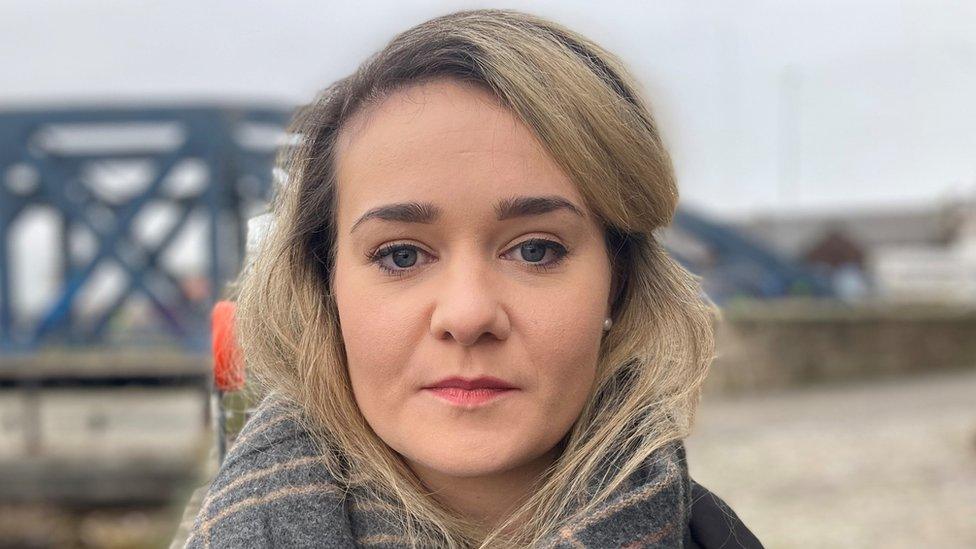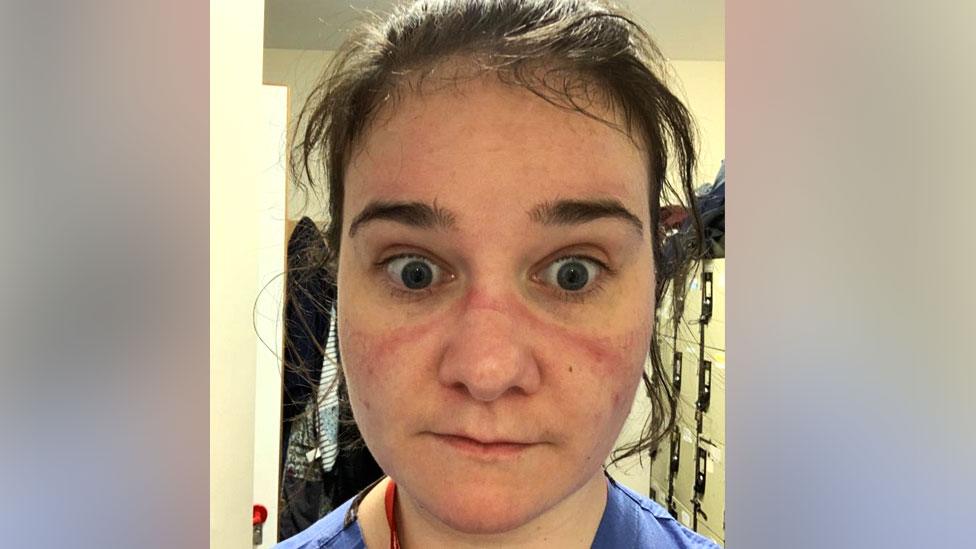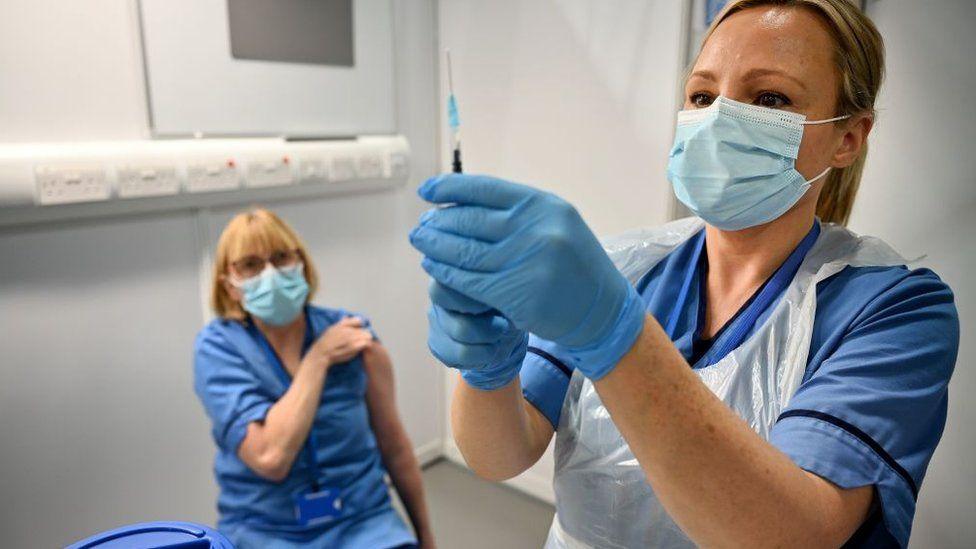Covid in Scotland: 'Nursing shifts left me inconsolable'
- Published

A nurse who worked in ICU through the pandemic has said she had to leave the profession because the pressure was too much to bear.
Former critical care nurse Chloe Burke told BBC Scotland she felt selfish leaving but did not see another option.
She said many of her colleagues had told her they would leave too if they had other jobs to go to.
Unions have warned of the impact of staffing shortages with a 7% nursing and midwifery vacancy rate.
Chloe said other nurses had encouraged her to speak up about the pressures they are currently facing.
She said many of them would like to speak up but feel unable to while they still work for the NHS.
Chloe qualified as a nurse four years ago. During the pandemic she worked in intensive care at an Edinburgh hospital, looking after the sickest patients.
'No-one could help'
She said staff shortages, sickness, and ongoing pressures made it harder and harder to do her job.
"No-one could help," she said. "Management couldn't help, everyone was trying to do their best in order to cover the shifts, but you don't have the manpower and you see your colleagues are suffering so try and cover more shifts so you are doing more than you should be doing.
"You just become more tired, and that goes for most nurses"
In August this year she decided she had to step away. She said: "I didn't think I would have to come to that decision. I didn't realise how much of an impact it was going to have on me, my mental health and my physical health.
"I started to have panic attacks and feel so overwhelmed, there were a few shifts when I came home and I was in tears and I was inconsolable"
"I couldn't sustain things."

Chloe said some of her colleagues would have panic attacks when they put on their PPE
Recruiting nurses has been a long-term issue for the NHS.
Despite record numbers of staff working for the health service, recent figures from the Royal College of Nursing (RCN) show more than 7% of nursing and midwifery posts are vacant , external- that's a record high and equates to almost 5,000 posts.
Unions have warned that shortages are compromising patient care. While other unions have accepted a 4% pay offer, the RCN is to announce results of a ballot on industrial action later this week.
'There are not enough nurses'
Hilary Nelson, a ICU nurse and safety representative with the RCN, said the pay deal was critical for attracting more people to the profession and stopping nurses leaving.
She told BBC Radio's Good Morning Scotland: "Nursing is tired. It's suffering a lot of stress and the pressure is not going away.
"There are not enough nurses for our members to do the job they are expected to do. We just don't have the workforce to do the job in hand.
"If you pay nurses more it will attract people into the profession."
Scottish government Health Secretary Humza Yousaf said: "NHS Scotland nurses are the best paid in the UK, and the pay deal, which has been agreed by the majority of unions and NHS staff, is the biggest pay rise in at least 20 years which saw staff receive an average 4% pay increase backdated to 1 December 2020.
"Every staff member up to and including Band 7 got an uplift of at least £1,000."
Toll of the job
Chloe said the public did not appreciate the toll the job takes on nurses - especially during the pandemic, when she said it was "very scary" to work in ICU.
For example, she said she saw former colleagues have panic attacks as they put on their PPE.
She added: "We have to unfortunately be the hand to hold as someone passes away, that's very, very hard. They are the things people don't know you go through as a nurse."
Sometimes she would not see her partner for three weeks because of her shifts. She often felt compelled to do extra shifts because she could see how much her colleagues were struggling when they were short staffed.
Leaving nursing was not about the money, but she said she did feel undervalued.

Vacancies in nursing and midwifery are at a record high
She's now moved back to the Irish countryside to work in the family business while she studies, before embarking on a new career in the property market.
She says she would love to return to nursing - but it would take a big change in working conditions for her to consider it.
"I felt so guilty, really really guilty that I was leaving all my colleagues and the profession and guilty as well for the patients.
"And sad because I really, really enjoyed it and the friends I've made there and the people that I worked with were one of a kind, but I had to be selfish unfortunately."